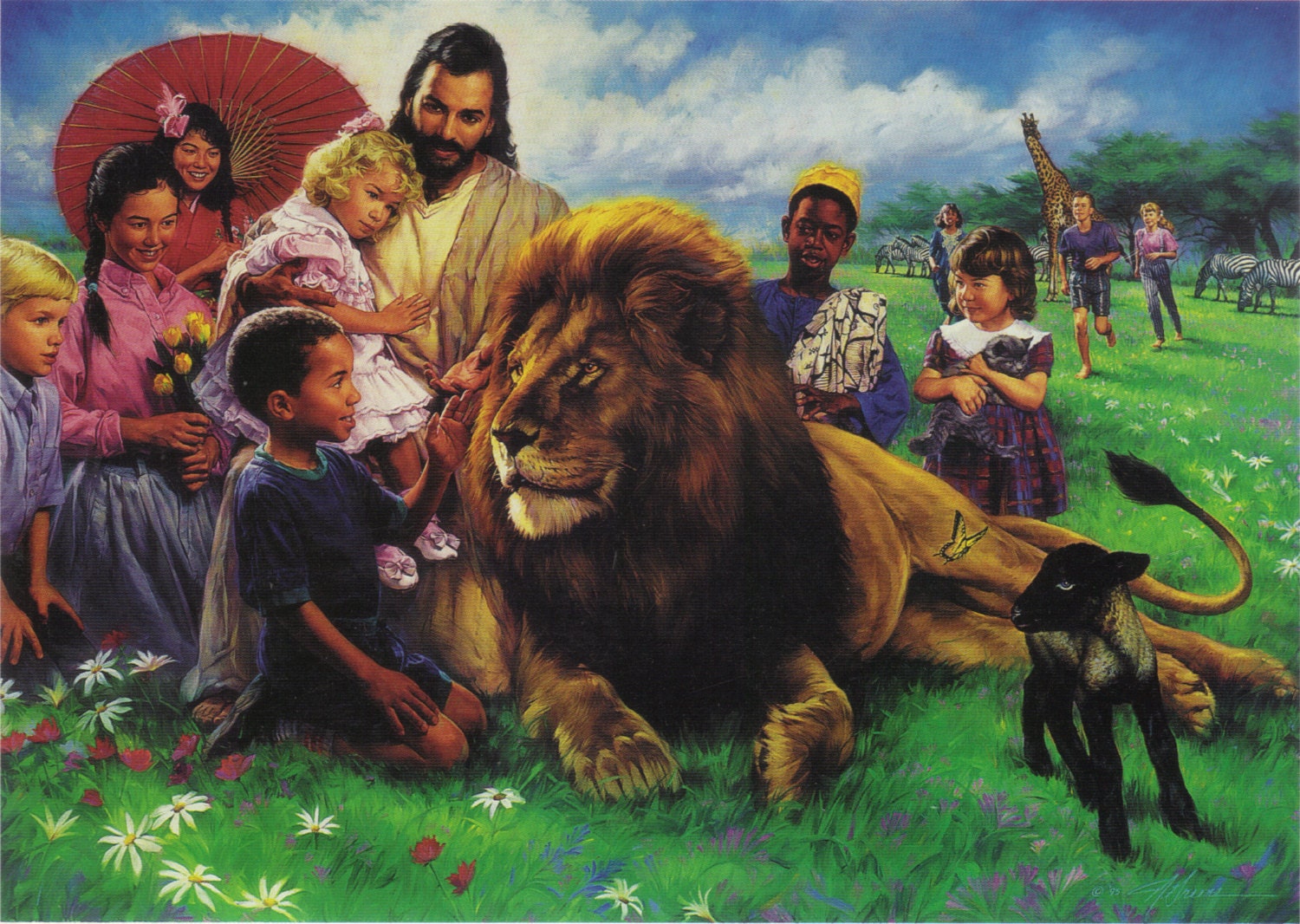What we believe
WHAT WE BELIEVE ABOUT . . .
THE BIBLE

What we believe is the Bible which includes both the Old and New Testaments, it is the written Word of God, given by Divine inspiration through holy men of God, who spoke and wrote as they were moved by the Holy Spirit. In this Word, God has committed to man the knowledge necessary for salvation. The Holy Scriptures are the infallible revelation of His will. They are the standard of character, the test of experience, the authoritative revealer of doctrines, and the trustworthy record of God’s acts in history. The Bible presents Jesus Christ as the hope for all mankind and presents His literal return as an infallible truth. (John 3:16; Romans 5:8; 2 Peter 1:20, 21; 2 Tim. 3:16, 17; Ps. 119:105; Prov. 30:5, 6; Isa. 8:20; John 17:17; 1 Thess. 2:13; Heb. 4:12, 1 Thess. 4:16,17)
WHAT WE BELEIVE ABOUT . . .
THE GODHEAD (THE TRINITY)
Immortal, all-powerful and all-loving, God is a relationship of Father, Son and Holy Spirit. The only being worthy of our worship, God is our Creator, Redeemer and Friend. What we believe is there is one God: God the Father, God the Son, and God the Holy Spirit, a unity of three coeternal Persons, each an individual with personality and autonomy. God is immortal, all-powerful, all-knowing, above all, and ever present. God the Father, Son and Holy describes three beings infinite and beyond human understanding. God describes and identifies the Father, the Son and the Holy Spirit, each who is love, each is forever worthy of worship, adoration, and service by the whole creation. (Gen. 1:26; Deut. 6:4; Isa. 6:8; Matt. 28:19; John 3:16 2 Cor. 1:21, 22; 13:14; Eph. 4:4-6; 1 Peter 1:2.)
WHAT WE BELIEVE ABOUT . . .
GOD THE FATHER
 God the Father is the source of all love and life. He sent His Son to save us from our sin and ourselves, and to show us what He is like. God the eternal Father is the Creator, Source, Sustainer, and Sovereign of all creation. He is just and holy, merciful and gracious, slow to anger, and abounding in steadfast love and faithfulness. The qualities and powers exhibited in the Son and the Holy Spirit are also those of the Father. When Jesus came to this earth for the salvation of mankind, it was also to show us how the Father looks upon sinners – with mercy. Every good and perfect gift comes from our heavenly Father, every impulse we have to do good comes from God, every act of kindness, every act of mercy, every act of unselfish love has its original source in God the Father. A parents love for their child is impossible to verbalize, nevertheless our love for our children is but a brief reflection of the Father’s love for us and our children. When Jesus declared “for God so loved the world that He gave His only begotten Son, that whoever believes in Him shall not perish but have everlasting life,” He was telling all mankind the lengths and sacrifices that God the Father was willing to do, in order to secure our salvation. God is truly love, and the Father’s love is measured by the sacrifice of his only beloved Son for mankind. (Gen. 1:1; Deut. 4:35; Ps. 110:1, 4; John 3:16; 14:9; 1 Cor. 15:28; 1 Tim. 1:17; 1 John 4:8; Rev. 4:11.)
God the Father is the source of all love and life. He sent His Son to save us from our sin and ourselves, and to show us what He is like. God the eternal Father is the Creator, Source, Sustainer, and Sovereign of all creation. He is just and holy, merciful and gracious, slow to anger, and abounding in steadfast love and faithfulness. The qualities and powers exhibited in the Son and the Holy Spirit are also those of the Father. When Jesus came to this earth for the salvation of mankind, it was also to show us how the Father looks upon sinners – with mercy. Every good and perfect gift comes from our heavenly Father, every impulse we have to do good comes from God, every act of kindness, every act of mercy, every act of unselfish love has its original source in God the Father. A parents love for their child is impossible to verbalize, nevertheless our love for our children is but a brief reflection of the Father’s love for us and our children. When Jesus declared “for God so loved the world that He gave His only begotten Son, that whoever believes in Him shall not perish but have everlasting life,” He was telling all mankind the lengths and sacrifices that God the Father was willing to do, in order to secure our salvation. God is truly love, and the Father’s love is measured by the sacrifice of his only beloved Son for mankind. (Gen. 1:1; Deut. 4:35; Ps. 110:1, 4; John 3:16; 14:9; 1 Cor. 15:28; 1 Tim. 1:17; 1 John 4:8; Rev. 4:11.)
WHAT WE BELIEVE ABOUT . . .
GOD THE SON

Jesus became human to save us. Through Him—our helper, advocate and redeemer—we can begin again. He is preparing heaven for us and will return to take us there. God the eternal Son became incarnate in Jesus Christ. Through Him all things were created, the character of God is revealed, the salvation of humanity is accomplished, and the world is judged. Forever truly God, He became also truly human, Jesus the Christ. He was conceived of the Holy Spirit and born of the virgin Mary. He lived and experienced temptation as a human being, but perfectly exemplified the righteousness and love of God. By His miracles He manifested God’s power and was attested as God’s promised Messiah. He suffered and died voluntarily on the cross for our sins and in our place. He redeemed every person who has ever walked the earth by his shed blood. Through Christ’s crucifixion, we can be all saved by grace through faith in the merits of His sacrificial act at Calvary. On Sunday morning, the first day of the week, Jesus was raised from the dead, and ascended to heaven to minister in the heavenly sanctuary in our behalf. He will come again in glory for the final deliverance of His people to take them back to His Father’s mansions as a great prelude for the restoration of all things. This event is known as the Second Coming or Blessed Hope. (Isa. 53:4-6; Dan. 9:25-27; Luke 1:35; John 1:1-3, 14; 5:22; 10:30; 14:1–3, 9, 13; Rom. 6:23; 1 Cor. 15:3, 4; 2 Cor. 3:18; 5:17-19; Phil. 2:5–11; Col. 1:15-19; Heb. 2:9-18; 8:1, 2.)
WHAT WE BELIEVE ABOUT . . .
GOD THE HOLY SPIRIT

The Holy Spirit inspires us, empowers us and guides our understanding. The Spirit touches our hearts and transforms us, renewing the image of God in which we were created. God the eternal Spirit was active with the Father and the Son in Creation, incarnation, and redemption. He is as much a person as are the Father and the Son. He inspired the writers of Scripture. He filled Christ’s life with power. He draws and convicts human beings; and those who respond He renews and transforms into the image of God. Sent by the Father and the Son to be always with His children, He extends spiritual gifts to the church, empowers it to bear witness to Christ, and in harmony with the Scriptures leads it into all truth. (Gen. 1:1, 2; 2 Sam. 23:2; Ps. 51:11; Isa. 61:1; Luke 1:35; 4:18; John 14:16-18, 26; 15:26; 16:7-13; Acts 1:8; 5:3; 10:38; Rom. 5:5; 1 Cor. 12:7-11; 2 Cor. 3:18; 2 Peter 1:21.)
WHAT WE BELIEVE ABOUT . . .
CREATION

God made our world with brilliant creativity and tender care. He created humanity to take care of and take pleasure in the planet, with rest and recreation in perfect balance. God has revealed in Scripture the authentic and historical account of His creative activity. He created the universe, and in a recent six-day creation the Lord made “the heavens and the earth, the sea, and all that is in them” and rested on the seventh day. Thus He established the Sabbath as a perpetual memorial of the work He performed and completed during six literal days that together with the Sabbath constituted the same unit of time that we call a week today. The first man and woman were made in the image of God as the crowning work of Creation, given dominion over the world, and charged with responsibility to care for it. When the world was finished it was “very good,” declaring the glory of God. (Gen. 1-2; 5; 11; Exod. 20:8-11; Ps. 19:1–6; 33:6, 9; 104; Isa. 45:12, 18; Acts 17:24; Col. 1:16; Heb. 1:2; 11:3; Rev. 10:6; 14:7.)
WHAT WE BELIEVE ABOUT . . .
THE NATURE OF MANKIND
 Once molded in God’s image, now fractured by sin, it took a perfect Savior to reconcile us. The Spirit restores God’s reflection within us so God can work through us. Man and woman were made in the image of God with individuality, the power and freedom to think and to do. Though created free beings, each is an indivisible unity of body, mind, and spirit, dependent upon God for life and breath and all else. When our first parents disobeyed God, they denied their dependence upon Him and fell from their high position. The image of God in them was marred and they became subject to death. Their descendants share this fallen nature and its consequences. They are born with weaknesses and tendencies to evil. But God in Christ reconciled the world to Himself and by His Spirit restores in penitent mortals the image of their Maker. Created for the glory of God, they are called to love Him and one another, and to care for their environment. (Gen. 1:26-28; 2:7, 15; 3; Ps. 8:4-8; 51:5, 10; 58:3; Jer. 17:9; Acts 17:24-28; Rom. 5:12-17; 2 Cor. 5:19, 20; Eph. 2:3; 1 Thess. 5:23; 1 John 3:4; 4:7, 8, 11, 20.)
Once molded in God’s image, now fractured by sin, it took a perfect Savior to reconcile us. The Spirit restores God’s reflection within us so God can work through us. Man and woman were made in the image of God with individuality, the power and freedom to think and to do. Though created free beings, each is an indivisible unity of body, mind, and spirit, dependent upon God for life and breath and all else. When our first parents disobeyed God, they denied their dependence upon Him and fell from their high position. The image of God in them was marred and they became subject to death. Their descendants share this fallen nature and its consequences. They are born with weaknesses and tendencies to evil. But God in Christ reconciled the world to Himself and by His Spirit restores in penitent mortals the image of their Maker. Created for the glory of God, they are called to love Him and one another, and to care for their environment. (Gen. 1:26-28; 2:7, 15; 3; Ps. 8:4-8; 51:5, 10; 58:3; Jer. 17:9; Acts 17:24-28; Rom. 5:12-17; 2 Cor. 5:19, 20; Eph. 2:3; 1 Thess. 5:23; 1 John 3:4; 4:7, 8, 11, 20.)
WHAT WE BELIEVE ABOUT . . .
MARRIAGE AND THE FAMILY
Created in God’s image, male and female, we are designed to live in relationships. Marriage is God’s ideal to live in harmony, and for children to grow up in security and love. Marriage was divinely established in Eden and affirmed by Jesus to be a lifelong union  between a man and a woman in loving companionship. For the Christian a marriage commitment is to God as well as to the spouse, and should be entered into only between a man and a woman who share a common faith. Mutual love, honor, respect, and responsibility are the fabric of this relationship, which is to reflect the love, sanctity, closeness, and permanence of the relationship between Christ and His church. Regarding divorce, Jesus taught that the person who divorces a spouse, except for fornication, and marries another, commits adultery. Although some family relationships may fall short of the ideal, a man and a woman who fully commit themselves to each other in Christ through marriage may achieve loving unity through the guidance of the Spirit and the nurture of the church. God blesses the family and intends that its members shall assist each other toward complete maturity. Increasing family closeness is one of the earmarks of the final gospel message. Parents are to bring up their children to love and obey the Lord. By their example and their words they are to teach them that Christ is a loving, tender, and caring guide who wants them to become members of His body, the family of God which embraces both single and married persons. (Gen. 2:18-25; Exod. 20:12; Deut. 6:5-9; Prov. 22:6; Mal. 4:5, 6; Matt. 5:31, 32; 19:3-9, 12; Mark 10:11, 12; John 2:1-11; 1 Cor. 7:7, 10, 11; 2 Cor. 6:14; Eph. 5:21-33; 6:1-4.)
between a man and a woman in loving companionship. For the Christian a marriage commitment is to God as well as to the spouse, and should be entered into only between a man and a woman who share a common faith. Mutual love, honor, respect, and responsibility are the fabric of this relationship, which is to reflect the love, sanctity, closeness, and permanence of the relationship between Christ and His church. Regarding divorce, Jesus taught that the person who divorces a spouse, except for fornication, and marries another, commits adultery. Although some family relationships may fall short of the ideal, a man and a woman who fully commit themselves to each other in Christ through marriage may achieve loving unity through the guidance of the Spirit and the nurture of the church. God blesses the family and intends that its members shall assist each other toward complete maturity. Increasing family closeness is one of the earmarks of the final gospel message. Parents are to bring up their children to love and obey the Lord. By their example and their words they are to teach them that Christ is a loving, tender, and caring guide who wants them to become members of His body, the family of God which embraces both single and married persons. (Gen. 2:18-25; Exod. 20:12; Deut. 6:5-9; Prov. 22:6; Mal. 4:5, 6; Matt. 5:31, 32; 19:3-9, 12; Mark 10:11, 12; John 2:1-11; 1 Cor. 7:7, 10, 11; 2 Cor. 6:14; Eph. 5:21-33; 6:1-4.)
WHAT WE BELIEVE ABOUT . . .
THE BATTLE BETWEEN GOOD AND EVIL
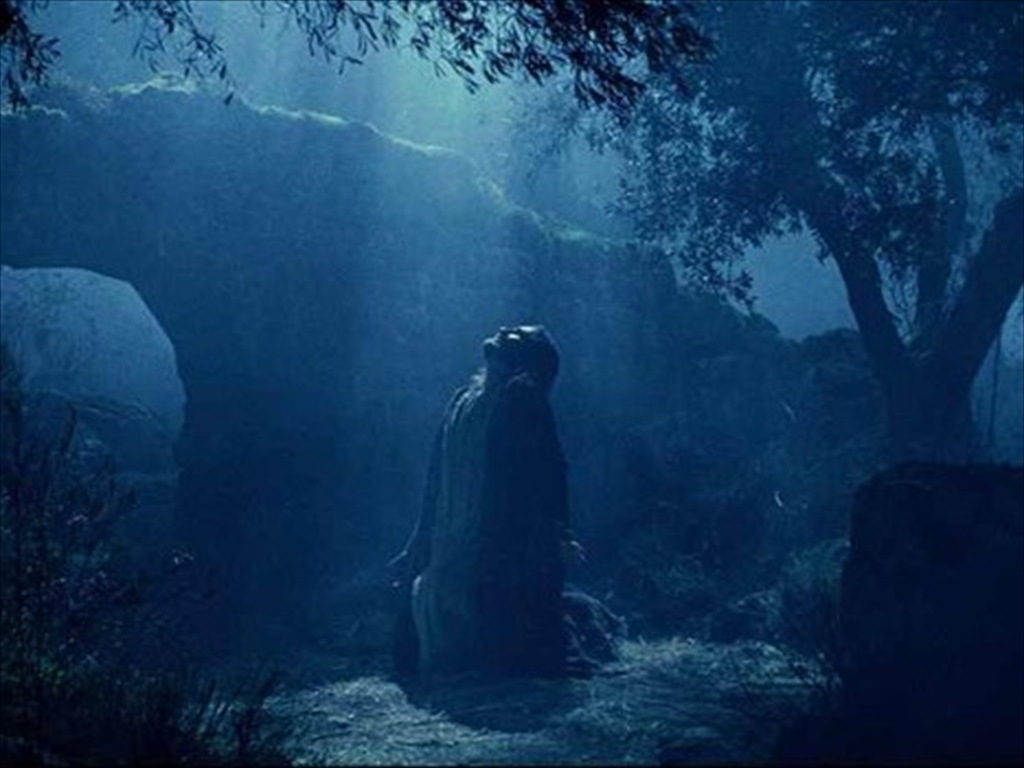
God gave us freedom to choose, and human history shows the result of rebellion—and the incredible power of God’s love to save us. All humanity is now involved in a great controversy between Christ and Satan regarding the character of God, His law, and His sovereignty over the universe. This conflict originated in heaven when a created being, endowed with freedom of choice, in self-exaltation became Satan, God’s adversary, and led into rebellion a portion of the angels. He introduced the spirit of rebellion into this world when he led Adam and Eve into sin. This human sin resulted in the distortion of the image of God in humanity, the disordering of the created world, and its eventual devastation at the time of the global flood, as presented in the historical account of Genesis 1-11. Observed by the whole creation, this world became the arena of the universal conflict, out of which the God of love will ultimately be vindicated. To assist His people in this controversy, Christ sends the Holy Spirit and the loyal angels to guide, protect, and sustain them in the way of salvation. (Gen. 3; 6-8; Job 1:6-12; Isa. 14:12-14; Ezek. 28:12-18; Rom. 1:19-32; 3:4; 5:12-21; 8:19-22; 1 Cor. 4:9; Heb. 1:14; 1 Peter 5:8; 2 Peter 3:6; Rev. 12:4-9.)
WHAT WE BELIEVE ABOUT . . .
THE SECOND COMING OF JESUS CHRIST
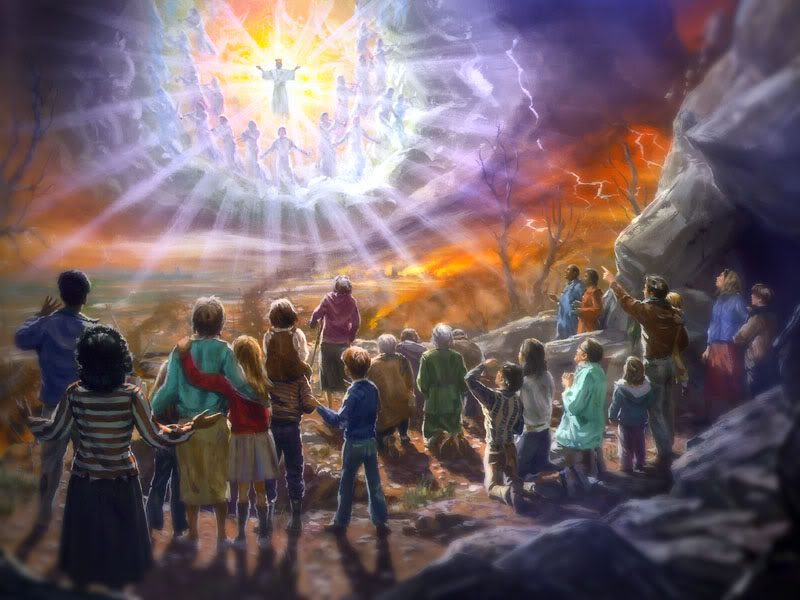
We look forward to Jesus’ promised return, when He will resurrect His saved children and take them to heaven. Though we cannot know exactly when He will come back, we can live in joyful anticipation. The second coming of Christ is the blessed hope of the church, the grand climax of the gospel. The Saviour’s coming will be literal, personal, visible, and worldwide. When He returns, the righteous dead will be resurrected, and together with the righteous living will be glorified and taken to heaven, but the unrighteous will die. The almost complete fulfillment of most lines of prophecy, together with the present condition of the world, indicates that Christ’s coming is near. The time of that event has not been revealed, and we are therefore exhorted to be ready at all times. (Matt. 24; Mark 13; Luke 21; John 14:1-3; Acts 1:9-11; 1 Cor. 15:51-54; 1 Thess. 4:13-18; 5:1-6; 2 Thess. 1:7-10; 2:8; 2 Tim. 3:1-5; Titus 2:13; Heb. 9:28; Rev. 1:7; 14:14-20; 19:11-21.)
WHAT WE BELIEVE ABOUT . . .
THE LIFE, DEATH AND RESURRECTION OF JESUS CHRIST

God sent Jesus, His Son, to live the perfect life we could not and die the death our sins deserve. When we accept Jesus’ sacrifice, we claim eternal life. In Christ’s life of perfect obedience to God’s will, His suffering, death, and resurrection, God provided the only means of atonement for human sin, so that those who by faith accept this atonement may have eternal life, and the whole creation may better understand the infinite and holy love of the Creator. This perfect atonement vindicates the righteousness of God’s law and the graciousness of His character; for it both condemns our sin and provides for our forgiveness. The death of Christ is substitutionary and expiatory, reconciling and transforming. The bodily resurrection of Christ proclaims God’s triumph over the forces of evil, and for those who accept the atonement assures their final victory over sin and death. It declares the Lordship of Jesus Christ, before whom every knee in heaven and on earth will bow. (Gen. 3:15; Ps. 22:1; Isa. 53; John 3:16; 14:30; Rom. 1:4; 3:25; 4:25; 8:3, 4; 1 Cor. 15:3, 4, 20-22; 2 Cor. 5:14, 15, 19-21; Phil. 2:6-11; Col. 2:15; 1 Peter 2:21, 22; 1 John 2:2; 4:10.)
WHAT WE BELIEVE ABOUT . . .
THE EXPERIENCE OF SALVATION
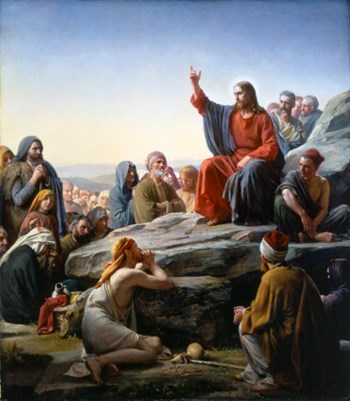
When we accept God’s grace and salvation, the Holy Spirit reveals our need for Jesus and recreates us. The Spirit builds our faith and helps us leave our broken lives behind. In infinite love and mercy God made Christ, who knew no sin, to be sin for us, so that in Him we might be made the righteousness of God. Led by the Holy Spirit we sense our need, acknowledge our sinfulness, repent of our transgressions, and exercise faith in Jesus as Saviour and Lord, Substitute and Example. This saving faith comes through the divine power of the Word and is the gift of God’s grace. Through Christ we are justified, adopted as God’s sons and daughters, and delivered from the lordship of sin. Through the Spirit we are born again and sanctified; the Spirit renews our minds, writes God’s law of love in our hearts, and we are given the power to live a holy life. Abiding in Him we become partakers of the divine nature and have the assurance of salvation now and in the judgment. (Gen. 3:15; Isa. 45:22; 53; Jer. 31:31-34; Ezek. 33:11; 36:25-27; Hab. 2:4; Mark 9:23, 24; John 3:3-8, 16; 16:8; Rom. 3:21-26; 8:1-4, 14-17; 5:6-10; 10:17; 12:2; 2 Cor. 5:17-21; Gal. 1:4; 3:13, 14, 26; 4:4-7; Eph. 2:4-10; Col. 1:13, 14; Titus 3:3-7; Heb. 8:7-12; 1 Peter 1:23; 2:21, 22; 2 Peter 1:3, 4; Rev. 13:8.)
WHAT WE BELIEVE ABOUT . . .
GROWING IN CHRIST

Salvation transforms how we see our world. We no longer fear our pasts or future, but embrace a present full of hope, love, passion and praise as the Spirit lives in us. By His death on the cross Jesus triumphed over the forces of evil. He who subjugated the demonic spirits during His earthly ministry has broken their power and made certain their ultimate doom. Jesus’ victory gives us victory over the evil forces that still seek to control us, as we walk with Him in peace, joy, and assurance of His love. Now the Holy Spirit dwells within us and empowers us. Continually committed to Jesus as our Saviour and Lord, we are set free from the burden of our past deeds. No longer do we live in the darkness, fear of evil powers, ignorance, and meaninglessness of our former way of life. In this new freedom in Jesus, we are called to grow into the likeness of His character, communing with Him daily in prayer, feeding on His Word, meditating on it and on His providence, singing His praises, gathering together for worship, and participating in the mission of the Church. We are also called to follow Christ’s example by compassionately ministering to the physical, mental, social, emotional, and spiritual needs of humanity. As we give ourselves in loving service to those around us and in witnessing to His salvation, His constant presence with us through the Spirit transforms every moment and every task into a spiritual experience. (1 Chron. 29:11; Ps. 1:1, 2; 23:4; 77:11, 12; Matt. 20:25-28; 25:31-46; Luke 10:17-20; John 20:21; Rom. 8:38, 39; 2 Cor. 3:17, 18; Gal. 5:22-25; Eph. 5:19, 20; 6:12-18; Phil. 3:7-14; Col. 1:13, 14; 2:6, 14, 15; 1 Thess. 5:16-18, 23; Heb. 10:25; James 1:27; 2 Peter 2:9; 3:18; 1 John 4:4.)
WHAT WE BELIEVE ABOUT . . .
THE CHURCH
 The church is God’s family on Earth, serving, celebrating, studying and worshiping together. Looking to Jesus as its leader and Redeemer, the church is called to take the good news of salvation to all. The church is the community of believers who confess Jesus Christ as Lord and Saviour. In continuity with the people of God in Old Testament times, we are called out from the world; and we join together for worship, for fellowship, for instruction in the Word, for the celebration of the Lord’s Supper, for service to humanity, and for the worldwide proclamation of the gospel. The church derives its authority from Christ, who is the incarnate Word revealed in the Scriptures. The church is God’s family; adopted by Him as children, its members live on the basis of the new covenant. The church is the body of Christ, a community of faith of which Christ Himself is the Head. The church is the bride for whom Christ died that He might sanctify and cleanse her. At His return in triumph, He will present her to Himself a glorious church, the faithful of all the ages, the purchase of His blood, not having spot or wrinkle, but holy and without blemish. (Gen. 12:1-3; Exod. 19:3-7; Matt. 16:13-20; 18:18; 28:19, 20; Acts 2:38-42; 7:38; 1 Cor. 1:2; Eph. 1:22, 23; 2:19-22; 3:8-11; 5:23-27; Col. 1:17, 18; 1 Peter 2:9.)
The church is God’s family on Earth, serving, celebrating, studying and worshiping together. Looking to Jesus as its leader and Redeemer, the church is called to take the good news of salvation to all. The church is the community of believers who confess Jesus Christ as Lord and Saviour. In continuity with the people of God in Old Testament times, we are called out from the world; and we join together for worship, for fellowship, for instruction in the Word, for the celebration of the Lord’s Supper, for service to humanity, and for the worldwide proclamation of the gospel. The church derives its authority from Christ, who is the incarnate Word revealed in the Scriptures. The church is God’s family; adopted by Him as children, its members live on the basis of the new covenant. The church is the body of Christ, a community of faith of which Christ Himself is the Head. The church is the bride for whom Christ died that He might sanctify and cleanse her. At His return in triumph, He will present her to Himself a glorious church, the faithful of all the ages, the purchase of His blood, not having spot or wrinkle, but holy and without blemish. (Gen. 12:1-3; Exod. 19:3-7; Matt. 16:13-20; 18:18; 28:19, 20; Acts 2:38-42; 7:38; 1 Cor. 1:2; Eph. 1:22, 23; 2:19-22; 3:8-11; 5:23-27; Col. 1:17, 18; 1 Peter 2:9.)
WHAT WE BELIEVE ABOUT . . .
BAPTISM

Baptism symbolizes and declares our new faith in Christ and our trust in His forgiveness. Buried in the water, we arise to a new life in Jesus, empowered by the Holy Spirit. By baptism we confess our faith in the death and resurrection of Jesus Christ, and testify of our death to sin and of our purpose to walk in newness of life. Thus we acknowledge Christ as Lord and Saviour, become His people, and are received as members by His church. Baptism is a symbol of our union with Christ, the forgiveness of our sins, and our reception of the Holy Spirit. It is by immersion in water and is contingent on an affirmation of faith in Jesus and evidence of repentance of sin. It follows instruction in the Holy Scriptures and acceptance of their teachings. (Matt. 28:19, 20; Acts 2:38; 16:30-33; 22:16; Rom. 6:1-6; Gal. 3:27; Col. 2:12, 13.)
WHAT WE BELIEVE ABOUT . . .
THE TEN COMMANDMENTS
 The Ten Commandments reveal God’s will and love for us. Its guidelines tell how to relate to God and others. Jesus lived out the law as both our example and perfect substitute. The great principles of God’s law are embodied in the Ten Commandments and exemplified in the life of Christ. They express God’s love, will, and purposes concerning human conduct and relationships and are binding upon all people in every age. These precepts are the basis of God’s covenant with His people and the standard in God’s judgment. Through the agency of the Holy Spirit they point out sin and awaken a sense of need for a Saviour. Salvation is all of grace and not of works, and its fruit is obedience to the Commandments. This obedience develops Christian character and results in a sense of well-being. It is evidence of our love for the Lord and our concern for our fellow human beings. The obedience of faith demonstrates the power of Christ to transform lives, and therefore strengthens Christian witness. (Exod. 20:1-17; Deut. 28:1-14; Ps. 19:7-14; 40:7, 8; Matt. 5:17-20; 22:36-40; John 14:15; 15:7-10; Rom. 8:3, 4; Eph. 2:8-10; Heb. 8:8-10; 1 John 2:3; 5:3; Rev. 12:17; 14:12.)
The Ten Commandments reveal God’s will and love for us. Its guidelines tell how to relate to God and others. Jesus lived out the law as both our example and perfect substitute. The great principles of God’s law are embodied in the Ten Commandments and exemplified in the life of Christ. They express God’s love, will, and purposes concerning human conduct and relationships and are binding upon all people in every age. These precepts are the basis of God’s covenant with His people and the standard in God’s judgment. Through the agency of the Holy Spirit they point out sin and awaken a sense of need for a Saviour. Salvation is all of grace and not of works, and its fruit is obedience to the Commandments. This obedience develops Christian character and results in a sense of well-being. It is evidence of our love for the Lord and our concern for our fellow human beings. The obedience of faith demonstrates the power of Christ to transform lives, and therefore strengthens Christian witness. (Exod. 20:1-17; Deut. 28:1-14; Ps. 19:7-14; 40:7, 8; Matt. 5:17-20; 22:36-40; John 14:15; 15:7-10; Rom. 8:3, 4; Eph. 2:8-10; Heb. 8:8-10; 1 John 2:3; 5:3; Rev. 12:17; 14:12.)
WHAT WE BELIEVE ABOUT . . .
THE SABBATH
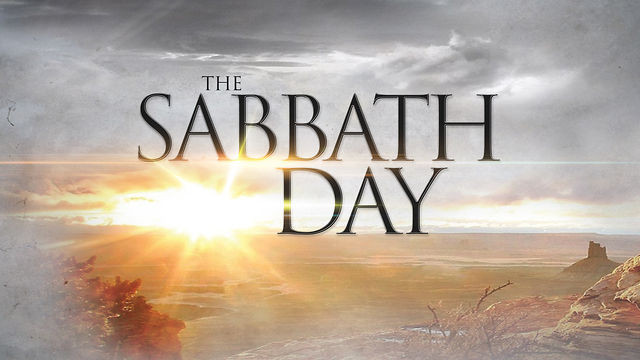
The Sabbath is God’s gift to us, a time for rest and restoration of our connection to God and others. It reminds us of God’s creation and Jesus’ grace. The gracious Creator, after the six days of Creation, rested on the seventh day and instituted the Sabbath for all people as a memorial of Creation. The fourth commandment of God’s unchangeable law requires the observance of this seventh-day Sabbath as the day of rest, worship, and ministry in harmony with the teaching and practice of Jesus, the Lord of the Sabbath. The Sabbath is a day of delightful communion with God and one another. It is a symbol of our redemption in Christ, a sign of our sanctification, a token of our allegiance, and a foretaste of our eternal future in God’s kingdom. The Sabbath is God’s perpetual sign of His eternal covenant between Him and His people. Joyful observance of this holy time from evening to evening, sunset to sunset, is a celebration of God’s creative and redemptive acts. (Gen. 2:1-3; Exod. 20:8-11; 31:13-17; Lev. 23:32; Deut. 5:12-15; Isa. 56:5, 6; 58:13, 14; Ezek. 20:12, 20; Matt. 12:1-12; Mark 1:32; Luke 4:16; Heb. 4:1-11.)
WHAT WE BELIEVE ABOUT . . .
OUR CONDITION IN DEATH

The unconscious nothingness of death separates us from the God of life, yet Jesus’ defeat of death means the saved can look forward to resurrection and living forever. The wages of sin is death. But God, who alone is immortal, will grant eternal life to His redeemed. Until that day death is an unconscious state for all people. When Christ, who is our life, appears, the resurrected righteous and the living righteous will be glorified and caught up to meet their Lord. The second resurrection, the resurrection of the unrighteous, will take place a thousand years later. (Job 19:25-27; Ps. 146:3, 4; Eccl. 9:5, 6, 10; Dan. 12:2, 13; Isa. 25:8; John 5:28, 29; 11:11-14; Rom. 6:23; 6:16; 1 Cor. 15:51-54; Col. 3:4; 1 Thess. 4:13-17; 1 Tim. 6:15; Rev. 20:1-10.)
WHAT WE BELIEVE ABOUT . . .
THE ONE THOUSAND YEARS AND THE END OF SIN

When the saved are taken to heaven, where is the City of God or as Christ referred to it as His Father’s house in John 14:1–3, Satan with the fallen angels (demons) will be bound or trapped on this desolate planet, which has been ravaged by the judgements and plagues described in Jeremiah 5:23–29 and Revelation 6–17. They will be imprisoned for one thousand years. After a thousand years God will resurrect the wicked lost for the final judgment before destroying sin and sinners. The millennium is the thousand-year reign of Christ with His saints in heaven between the first and second resurrections. During this time the wicked dead will be judged; the earth will be utterly desolate, without living human inhabitants, but occupied by Satan and his angels. At its close, Christ with His saints and the Holy City will descend from heaven to earth. The unrighteous dead will then be resurrected, and with Satan and his angels will surround the city; but fire from God will consume them and cleanse the earth. The universe will thus be freed of sin and sinners forever. (Rev. 20; John 5:28–29;1 Cor. 6:2, 3; Jer. 4:23-26; Rev. 6-17; Mal. 4:1; Eze. 28:18, 19; Matt 24, Luke 21.)
WHAT WE BELIEVE ABOUT . . .
THE NEW HEAVENS AND THE NEW EARTH
God will recreate our once-stained world, and live with us forever. We will finally achieve our true potential, living in the love and joy for which God created us. In the new earth, in which righteousness dwells, God will provide an eternal home for the redeemed and a perfect environment for everlasting life, love, joy, and learning in His presence. For here God Himself will dwell with His people, and suffering and death will have passed away. The great controversy will be ended, and sin will be no more. All things, animate and inanimate, will declare that God is love; and He shall reign forever. Amen. (Isa. 35; 65:17-25; Matt. 5:5; 2 Peter 3:13; Rev. 11:15; 21:1-7; 22:1-5.)
WHAT WE BELIEVE ABOUT . . .
THE LORD’S SUPPER

The Lord’s Supper symbolizes our acceptance of the body and blood of Jesus, spilled and broken for us. By searching our hearts and washing one another’s feet, we remember Jesus’ humble example of service. The Lord’s Supper is a participation in the emblems of the body and blood of Jesus as an expression of faith in Him, our Lord and Saviour. In this experience of communion Christ is present to meet and strengthen His people. As we partake, we joyfully proclaim the Lord’s death until He comes again. Preparation for the Supper includes self-examination, repentance, and confession. The Master ordained the service of foot-washing to signify renewed cleansing, to express a willingness to serve one another in Christlike humility, and to unite our hearts in love. The communion service is open to all believing Christians. (Matt. 26:17-30; John 6:48-63; 13:1-17; 1 Cor. 10:16, 17; 11:23-30; Rev. 3:20.)
WHAT WE BELIEVE ABOUT . . .
SPIRITUAL GIFTS AND MINISTRIES

From art to teaching and listening to preaching, the Holy Spirit empowers each of us with skills and talents to use for God’s glory and the church’s mission. God bestows upon all members of His church in every age spiritual gifts that each member is to employ in loving ministry for the common good of the church and of humanity. Given by the agency of the Holy Spirit, who apportions to each member as He wills, the gifts provide all abilities and ministries needed by the church to fulfill its divinely ordained functions. According to the Scriptures, these gifts include such ministries as faith, healing, prophecy, proclamation, teaching, administration, reconciliation, compassion, and self-sacrificing service and charity for the help and encouragement of people. Some members are called of God and endowed by the Spirit for functions recognized by the church in pastoral, evangelistic, and teaching ministries particularly needed to equip the members for service, to build up the church to spiritual maturity, and to foster unity of the faith and knowledge of God. When members employ these spiritual gifts as faithful stewards of God’s varied grace, the church is protected from the destructive influence of false doctrine, grows with a growth that is from God, and is built up in faith and love. (Acts 6:1-7; Rom. 12:4-8; 1 Cor. 12:7-11, 27, 28; Eph. 4:8, 11-16; 1 Tim. 3:1-13; 1 Peter 4:10, 11.)
WHAT WE BELIEVE ABOUT . . .
STEWARDSHIP, TIHES AND OFFERINGS

God entrusts us with responsibility for ourselves, our world, our fellow humans, and our material resources. God blesses our efforts as we live for Him. we are God’s stewards, entrusted by Him with time and opportunities, abilities and possessions, and the blessings of the earth and its resources. We are responsible to Him for their proper use. We acknowledge God’s ownership by faithful service to Him and our fellow human beings, and by returning tithe and giving offerings for the proclamation of His gospel and the support and growth of His church. Stewardship is a privilege given to us by God for nurture in love and the victory over selfishness and covetousness. Stewards rejoice in the blessings that come to others as a result of their faithfulness. (Gen. 1:26-28; 2:15; 1 Chron. 29:14; Haggai 1:3-11; Mal. 3:8-12; Matt. 23:23; Rom. 15:26, 27; 1 Cor. 9:9-14; 2 Cor. 8:1-15; 9:7.)
WHAT WE BELIEVE ABOUT . . .
CHRISTIAN BEHAVIOUR
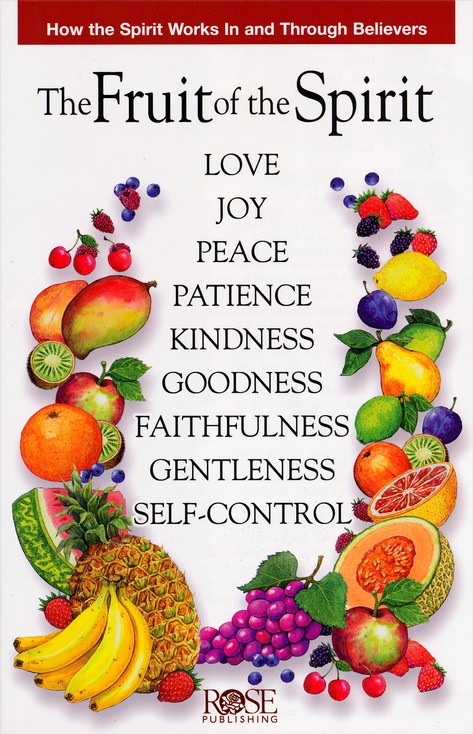
God calls us to live in light of His grace, knowing the infinite cost God paid to save us. Through the Holy Spirit we glorify God in our minds, bodies and spirits. We are called to be a godly people who think, feel, and act in harmony with biblical principles in all aspects of personal and social life. For the Spirit to recreate in us the character of our Lord we involve ourselves only in those things that will produce Christlike purity, health, and joy in our lives. This means that our amusement and entertainment should meet the highest standards of Christian taste and beauty. While recognizing cultural differences, our dress is to be simple, modest, and neat, befitting those whose true beauty does not consist of outward adornment but in the imperishable ornament of a gentle and quiet spirit. It also means that because our bodies are the temples of the Holy Spirit, we are to care for them intelligently. Along with adequate exercise and rest, we are to adopt the most healthful diet possible and abstain from the unclean foods identified in the Scriptures. Since alcoholic beverages, tobacco, and the irresponsible use of drugs and narcotics are harmful to our bodies, we are to abstain from them as well. Instead, we are to engage in whatever brings our thoughts and bodies into the discipline of Christ, who desires our wholesomeness, joy, and goodness. (Gen. 7:2; Exod. 20:15; Lev. 11:1-47; Ps. 106:3; Rom. 12:1, 2; 1 Cor. 6:19, 20; 10:31; 2 Cor. 6:14-7:1; 10:5; Eph. 5:1-21; Phil. 2:4; 4:8; 1 Tim. 2:9, 10; Titus 2:11, 12; 1 Peter 3:1-4; 1 John 2:6; 3 John 2.)

